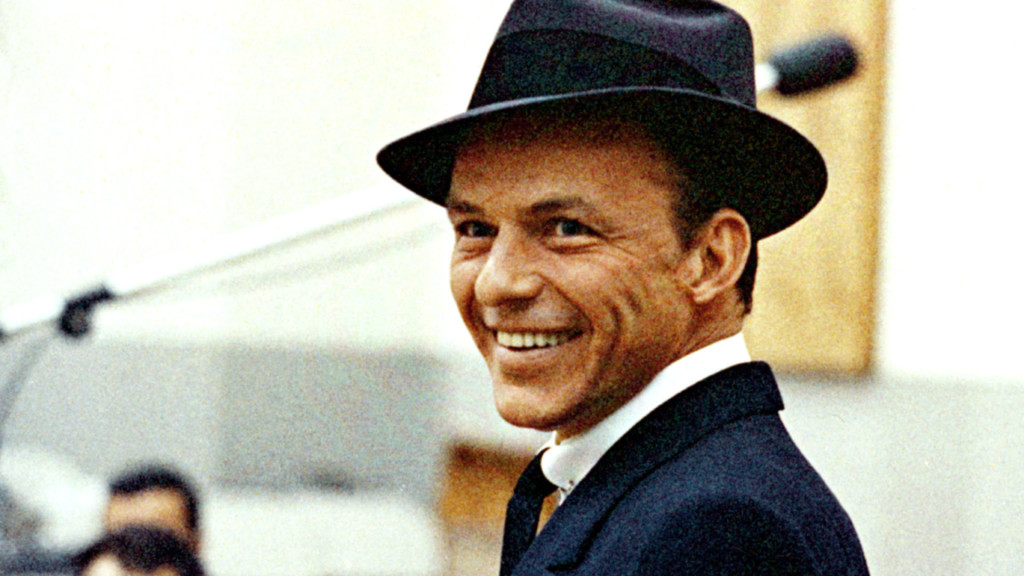
December 12th is the 100th year celebration of the birth of the scrawny kid from Hoboken that for all time is known as the Voice. Ramparts has no intention to achieve some definitive coda to the gift that was Frank Sinatra to the world of song – the event of his centennial birth is bringing forth magnificent tributes that remind all of us the multi decade contribution of a singer that defined music, without ever being able to read a single note of it. For instance, the don’t you dare miss contribution of Mark Steyn, writer extraordinaire who becomes even more extraordinary when he focuses his story telling virtuosity to music. Steyn has spent the past year detailing the wonderful contributions and stories behind Sinatra’s Greatest Hundred Songs(per Steyn). Pick your own hundred favorite songs. There are hundreds to choose from. Sinatra’s treatments transcend almost anybody else’s attempt to define the songs, and ring in our memories whenever we think of them.
They are the epic performances of one of music’s most complicated artists, who brought real meaning to the juxtaposition of true professional — and major pain in the rear. Despite being borne of immigrant surroundings, minimal schooling, and the rawest of vocal training, he proved to be a performance perfectionist with legendary phrasing capabilities and a trinity of voices that included brassy tenor, mellow midrange and vulnerable baritone. Musicians loved to perform with him and arrangers wanted to interpret with him. Almost no one wanted to cross him. A smoker, drinker, and carouser, he treated his musical instrument, his magical voice with impudence, and in the late 1940’s nearly destroyed it forever. The gift recovered, however, and the 1950s and 1960s would prove that the vocal changes occasioned by the period of vocal chord failure made for an even more spectacular interpretive vocalization. Sinatra, doing it his way,
Sinatra was of a time of song interpreters, and he was the best. He drew out of Ira Gershwin, Sammy Kahn, Johnny Mercer, Harold Arlen, and Lorenz Hart and other great lyricists sound images that transformed their best works and raised the lyrics to the level of poetry with his phrasing and word play. When tied to the great arrangers like Nelson Riddle, Billy May and Gordon Jenkins the music evoked real emotions and life enhancement. You may not be able to live the life of Sinatra, but he would help you live yours, in brandishing exuberance for life, the pain of loss, the sensual nature of attraction, and the vulnerable sadness of the memories fading away. The generations of Americans that grew up with him, the adoration Bobby Soxer teenagers of the 40s, the confident young adults of the post WWII America, the on top of the world masculinity of the 60’s, and the chastened and circumspect parents of the 70s all heard in Sinatra the chimes of their own story.
The most powerful memories that define musical Sinatra are the Capitol Record years with a mature Sinatra bringing his own peculiar mix of machismo and vulnerability to a string of albums that flexed between swinging exuberance and the depths of despair. Albums like Come Fly With Me, In the Wee Small Hours, and Nice and Easy. Sinatra knew how to swing better than anyone, and he knew how to breathe better than anyone, and it made both up tempo and extended ballads ring with peerless excellence. He studied the lyrics and poured over the arrangements until they achieved a synthesis he could be happy with, and given his sense of accomplishment of task was achieved at a level that few could match, for that, we will always be eternally grateful.
A performer always, he lingered in the 1980s and 1990s beyond what his vocal gift could bear, and the later performances are often gruff and at times, forgettable. But even late in life he could summon up greatness, in the life defining song My Way, or the late hit New York, New York. In the final years, he might botch a lyric or forget a stanza, but he would pick himself off the mat and become Sinatra for at least one or two songs, and the audiences adored him.
Then again, we are all the sum of our best memories and Sinatra, at his best, made life seem just a little special. The Sinatra of the 1950s and 1960s, at the height of his vocal powers could crackle and sizzle like the ebullient and confident American Century he epitomized, and helped us feel there was a natural order to our optimism. Given our current funk, Sinatra would grab us and shake us, until we woke up and got it back together. Emoting the words of Dean Kay, Sinatra would have set us right…
That’s Life
That’s what all the people say
You’re ridin’ high in April
Shot down in May
But I know I’m gonna change that tune
When I’m right back up on top in June…Happy Birthday, Frank